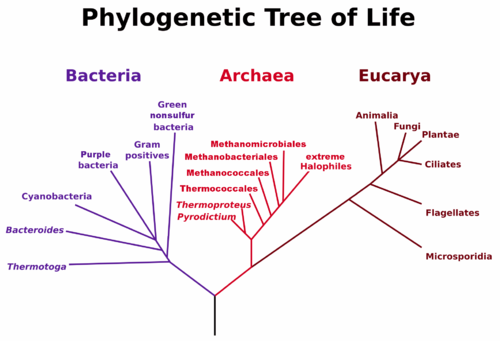Organism
(Redirected from Living organisms)

An organism encompasses any individual living entity, transcending the bounds of mere definition to represent a plethora of life forms — from the visibly evident plants and animals to microscopic entities that evade the naked eye. The vast tapestry of life is composed of these organisms, each uniquely adapted and essential to the ecosystem.
Recognizing and Defining Organisms
While distinguishing a living thing might be intuitive, confining it to a definitive description remains challenging:
- Animals and plants are overtly recognized as organisms.
- Organisms constitute the biotic or living segment of an environment.
- In contrast, aspects like rocks and sunshine typify the non-living or abiotic components.
Essential Needs of Organisms
To perpetuate their metabolic activities, organisms predominantly require:
- Air: Though this is not universal, with several organisms existing independent of air.
- Water: A crucial solvent and medium for various biochemical reactions.
- Nutrients (Food): Vital for energy and growth.
- Energy: Required to fuel metabolic processes.
- Habitat: A place that provides conducive conditions for growth and reproduction.
The Conundrum of Viruses
Viruses present a conceptual challenge in biology:
While composed of proteins and nucleic acids and exhibiting the capability to evolve, their classification as living entities is contentious. Viruses manifest in two distinct phases:
- Dormant Phase: They remain inert.
- Active Phase: Within a host cell, they vigorously reproduce.
An analogy can be drawn to computer programs, which oscillate between periods of activity and dormancy, while retaining their inherent identity.
Spores: Dormancy in Organisms
Spores typify another intriguing aspect of dormancy in organisms:
Serving as the dispersal phase for entities like bacteria, fungi, and certain plants. Though equipped with essential components to construct a full-fledged organism, spores remain inactive until encountering favorable conditions.
Cellular Composition of Organisms
Organisms can be dichotomized based on their cellular composition:
Multicellular Organisms
Comprising millions of cells. Frequently visible without the aid of microscopy. Examples encompass most plants, animals, and fungi.
Unicellular or Single-Celled Organisms
- Consist of a solitary cell.
- Termed microorganisms owing to their minuscule size.
- Microscopes are imperative for observing them.
- Examples feature bacteria and protozoa, such as the Amoeba and Paramecium.
| Elements of nature | ||||||||||||
|---|---|---|---|---|---|---|---|---|---|---|---|---|
* Category
|
| Hierarchy of life |
|---|
|
|
| Self-replicating organic structures | ||||||||||||||||||||||||||||||
|---|---|---|---|---|---|---|---|---|---|---|---|---|---|---|---|---|---|---|---|---|---|---|---|---|---|---|---|---|---|---|
|
Transform your life with W8MD's budget GLP-1 injections from $125.
W8MD offers a medical weight loss program to lose weight in Philadelphia. Our physician-supervised medical weight loss provides:
- Most insurances accepted or discounted self-pay rates. We will obtain insurance prior authorizations if needed.
- Generic GLP1 weight loss injections from $125 for the starting dose.
- Also offer prescription weight loss medications including Phentermine, Qsymia, Diethylpropion, Contrave etc.
NYC weight loss doctor appointments
Start your NYC weight loss journey today at our NYC medical weight loss and Philadelphia medical weight loss clinics.
- Call 718-946-5500 to lose weight in NYC or for medical weight loss in Philadelphia 215-676-2334.
- Tags:NYC medical weight loss, Philadelphia lose weight Zepbound NYC, Budget GLP1 weight loss injections, Wegovy Philadelphia, Wegovy NYC, Philadelphia medical weight loss, Brookly weight loss and Wegovy NYC
|
WikiMD's Wellness Encyclopedia |
| Let Food Be Thy Medicine Medicine Thy Food - Hippocrates |
Medical Disclaimer: WikiMD is not a substitute for professional medical advice. The information on WikiMD is provided as an information resource only, may be incorrect, outdated or misleading, and is not to be used or relied on for any diagnostic or treatment purposes. Please consult your health care provider before making any healthcare decisions or for guidance about a specific medical condition. WikiMD expressly disclaims responsibility, and shall have no liability, for any damages, loss, injury, or liability whatsoever suffered as a result of your reliance on the information contained in this site. By visiting this site you agree to the foregoing terms and conditions, which may from time to time be changed or supplemented by WikiMD. If you do not agree to the foregoing terms and conditions, you should not enter or use this site. See full disclaimer.
Credits:Most images are courtesy of Wikimedia commons, and templates, categories Wikipedia, licensed under CC BY SA or similar.
Contributors: Prab R. Tumpati, MD



